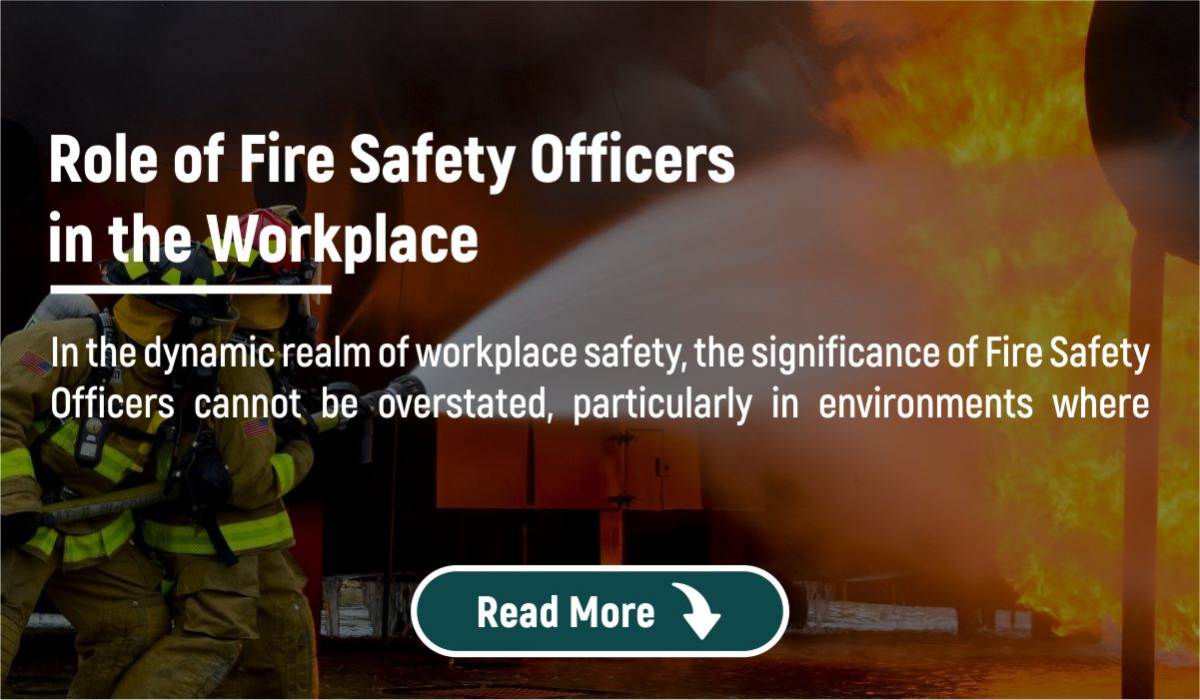
Role of Fire Safety Officers in the Workplace
In the dynamic realm of workplace safety, the significance of Fire Safety Officers cannot be overstated, particularly in environments where stringent regulations are in force to safeguard both personnel and assets.
The Crucial Role of Fire Safety Officers
At the forefront of defense against the destructive impact of fire incidents in workplaces, Fire Safety Officers bear the primary responsibility for devising and executing comprehensive fire safety strategies. Their duties encompass conducting risk assessments, formulating emergency response protocols, and ensuring thorough training of all staff in fire safety procedures. Moreover, Fire Safety Officers are pivotal in routinely inspecting firefighting equipment, such as alarms and extinguishers, to confirm their operational readiness.
These officers are entrusted with key tasks critical for maintaining workplace security. Below is an outline of their primary duties:
Fire Hazard Assessment: Conducting thorough evaluations to identify potential fire hazards within the workplace, encompassing assessment of layout, equipment, and operational processes to mitigate risks effectively.
Policy Development: Collaborating with management to craft and implement fire safety policies that serve as guiding principles for all personnel, outlining necessary precautions and response procedures.
Training: Organizing and delivering comprehensive fire safety training sessions for all employees, covering preventive measures, equipment usage, and evacuation protocols.
Emergency Planning: Developing and implementing tailored emergency response plans for fire incidents, ensuring staff readiness through regular drills.
Equipment Maintenance: Overseeing regular upkeep and inspection of firefighting equipment to ensure optimal functionality during emergencies.
Regulatory Compliance: Staying abreast of fire safety regulations and codes to ensure organizational adherence, conducting audits and inspections as needed.
Investigation and Reporting: Leading investigations into fire incidents to determine root causes and providing detailed reports for preventive action and improvement.
Legal Compliance and Expectations
Fire Safety Officers must acquaint themselves with legal frameworks, such as the Regulatory Reform (Fire Safety) Order 2005, which places responsibility for fire safety on designated individuals, often including Fire Safety Officers. Compliance with these regulations is not only a legal imperative but also a cornerstone of workplace security.
Legal Implications and Consequences
Failure to meet fire safety requirements can lead to severe repercussions, including legal action, fines, or imprisonment in cases of negligence. Additionally, there may be reputational damage and business disruptions, underscoring the importance of stringent compliance.
The Role in Summary
Fire Safety Officers play a pivotal role in fortifying workplaces against fire hazards, bearing both moral and legal obligations. Their vigilance and adherence to regulations are paramount in preventing devastating consequences and fostering a safer working
